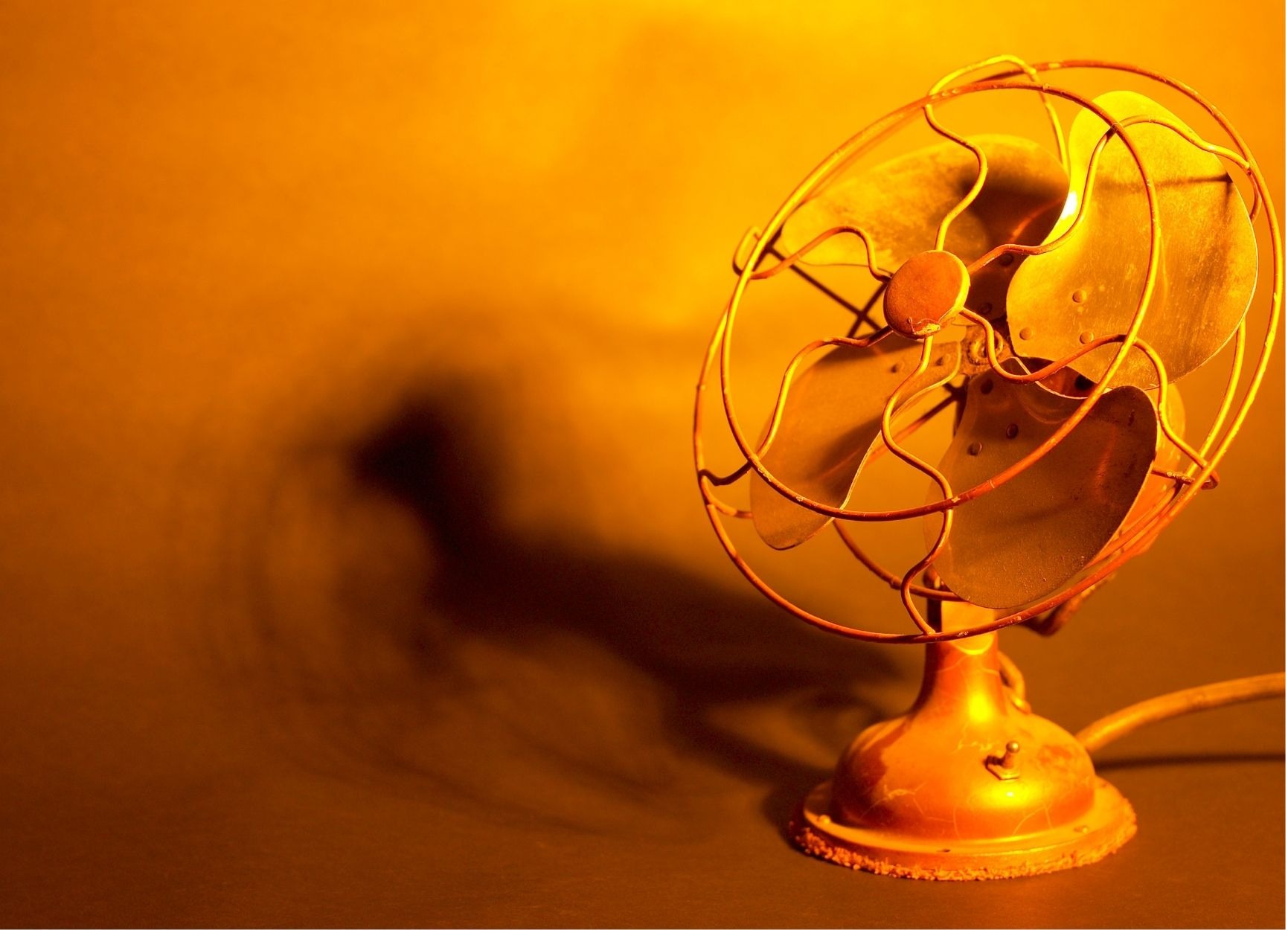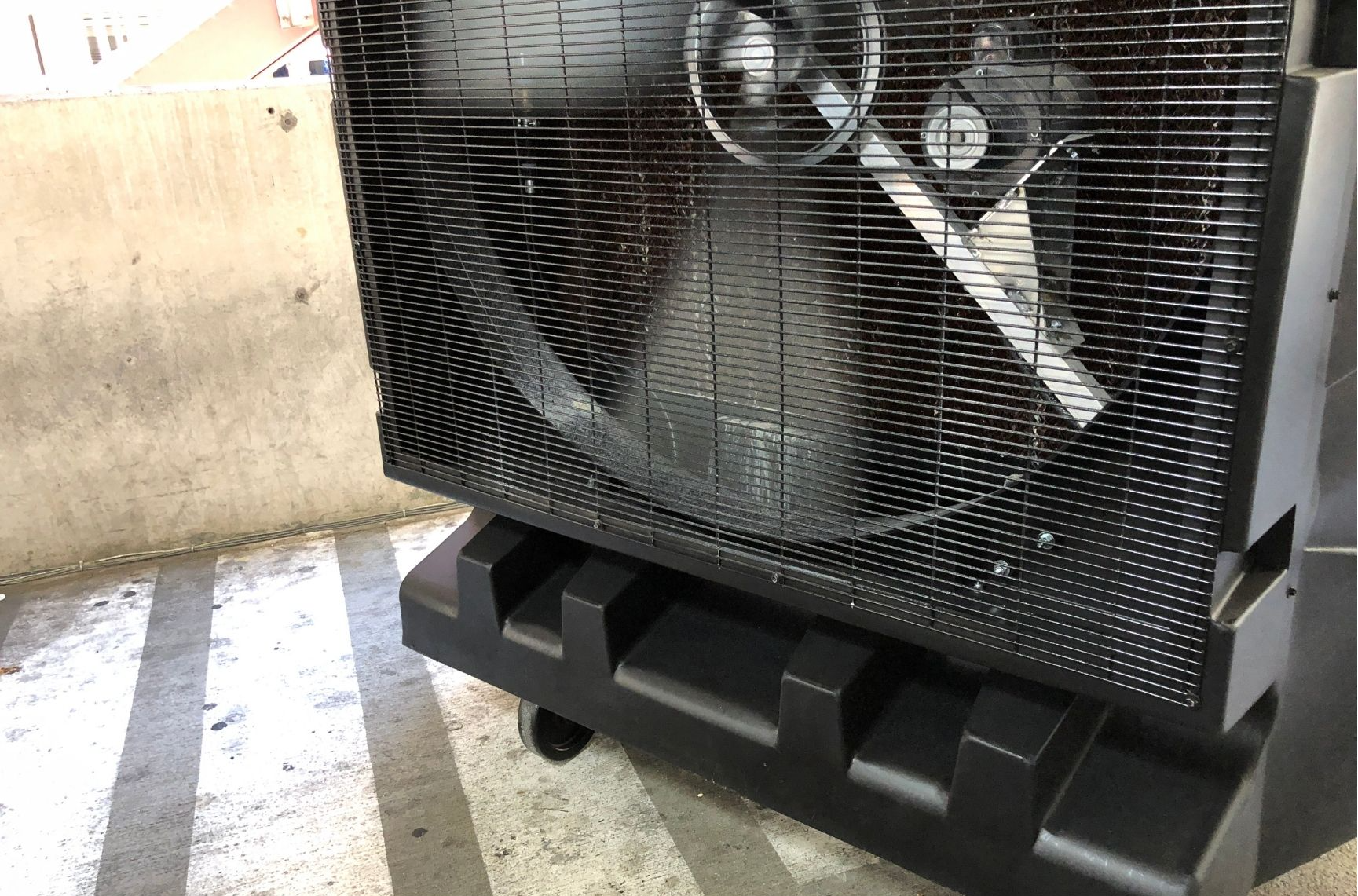Table of Contents
Can you reduce humidity in an air cooler?
Evaporative air coolers have the advantage of being cheaper to run than a portable or window air conditioner because they don’t use as much energy.
Air coolers are a much simpler design in that they are basically a fan blowing over and through water.
And if you live in a very dry area, the extra moisture that evaporative air coolers create is welcomed. And evaporative air coolers do a very nice job of cooling a house when the air is dry.
But if you live in an area with a normal range of humidity, air coolers have the disadvantage of creating much more humidity in your house then you need.
And the result is the uncomfortable feeling of stickiness, as well his other symptoms like fatigue. Too much humidity can just put you in a bad mood.
So it’s not surprising that one of the first things people want to know about air coolers is how to reduce the humidity in the house when using one.
Unfortunately there is not one magic bullet to reduce the humidity created by an air cooler.
But… There are a few things that can help you reduce the humidity in your home caused by an air cooler.
 1. Open Windows
1. Open Windows
There is a misconception that air coolers work best when a room is tightly closed. Not so.
Opening the window or Windows on the other side of the house actually helps pull the air through the house making the air cooler more efficient.
And the open windows let dryer air back into the house which can help lower the humidity caused by the air cooler.
2. Extra Fans
Adding some extra fans in the house will help dry the air.
Anything that causes rapid air movement, including a fan, can evaporate moisture.
Though the amount of air being moved by a fan may not amount to much drop in the humidity, having air blowing directly on you will help reduce the feeling of humidity.
Think about it this way: if you were to sit in front of a fan with your hair wet, your hair would dry faster.
If your skin is feeling sticky from humidity and you sit in front of a fan, the humidity on your skin would dry out. Using fans along side an air cooler is a super easy and smart solution.
3. Exhaust Fans
What do you do when after you take a steamy shower and the mirror and the windows are fogged over with condensation?
You turn on the exhaust fan.
Same thing in the kitchen. If the air is getting steamy from cooking and boiling, you flip on the exhaust.
Installing and running a few exhaust fans is an excellent ideal to pull some of the excess humidity caused by your air cooler out of the house.
4. Desiccant Dehumidifier
Desiccant Dehumidifiers are dehumidifiers that do not use a compressor and coil system. Instead they use a silica gel chemical absorbent to absorb moisture out of the air.
Silica gel is known as the little packets that are included in all types of products. Anything from shoes to electronics to help keep moisture out.
Desiccant dehumidifiers are full size units that are able to work spaces up to 480 ft.
And they also come in portable containers that you can place around your house.
Desiccant dehumidifierd are also completely silent because they do not use a compressor or a fan to reduce the humidity.
Can you a run a dehumidifier with an air cooler?
Technically you can use a standard compressor based dehumidifier to help reduce the humidity caused by an air cooler.
But you have to remember they do exhaust heat out of the rear. Which will compete with the cool air coming from the air cooler. And they are loud.
This is a more experimental approach to lowering the humidity caused by an evaporative air cooler. And it’s probably worth a shot if you happen to have a dehumidifier on hand.
But if you were thinking about purchasing a dehumidifier to lower the humidity caused by a evaporative air conditioner, then it begs the question:
Why don’t you just purchase a window air conditioner or portable air conditioner instead of an air cooler?
Other Natural Humidity Remedies
All natural dehumidifiers are a good way to reduce humidity in your house while running an evaporative air cooler.
Some of the most popular are:
- Charcoal briquettes
- Calcium chloride
- Rock salt
- Coffee creamer
1.Charcoal Briquettes
Charcoal is a naturally porous absorber that can be used as a do-it-yourself dehumidifier.
Simply filling some containers with about 8 to 10 charcoal briquettes and setting them throughout the house will have a dehumidifying effect that will help dry out your air.
2.Rock salt
Rock salt is also a well-known damp absorber.
The idea is to take two buckets. Drill holes in the bottom of one and put it inside of the other bucket was something in between the buckets to keep them apart. ( It doesn’t matter what you use, I use the lid off of a peanut butter jar that was in the trash)
Then fill the top bucket with rock salt.
3.Calcium Chloride
Calcium chloride is an all natural dehumidifier also.
The ideal here is to take a sock and fill it with calcium chloride then hang the sock somewhere with a bowl or a bucket beneath it to capture the condensation that will begin to drip from it.
4.Coffee Creamer
Cheap coffee creamer is a surprisingly good moisture absorber. And there is really no technique to using it.
Simply purchase the biggest container of cheap white coffee creamer that you can buy and pour it into a bowl.
The coffee creamer will draw moisture.
You’ll know to replace it when the coffee creamer gets too hard.
Dehumidifying Plants
Plants are natural dehumidifiers all on their own.
Anything that pulls moisture out of the air is going to be a dehumidifier and plants certainly qualify. Some plants more than others.
The best plants for dehumidification or plants that have waxy or hairy leaves with a large surface area.
Here’s just a few as an example.
1. Cactus
Cactus flourish in dry regions because of their ability to draw moisture out of the air.
There’s not an easier plant to take care of than a cactus either.
2. English ivy
English IVY is a super easy plan to take care of that’s also a great starter plant. It also is a great dehumidifier and thrives off of the humidity in the bathroom.
3. Spider Plant
Spider plant is an easy indoor favorite. It grows easy and it grows quick in about any circumstance you put it in.
4. Peace lily
Peace lily is a lovely plant that is not only a dehumidifier, is a air purifier too. This plant removes air pollutants like formaldehyde and xylene and is a addition to your home if you suffer from seasonal allergies or asthma.
Does air cooler increase humidity?
No doubt an air cooler increases the humidity in the space it is being used in.
Evaporative air coolers or basically a fan blowing over evaporated water as a means of cooling the air off as it’s blowing.
Essentially a giant humidifier.
Can an air cooler cool the room?
An evaporative air cooler can cool the room off nicely in the right circumstances. For instance, if you live in a dry area, then an air cooler can make a room feel very comfortable.
But if you live in an area that is already humid, then an air cooler will just pile on the humidity and add insult to injury.
Is there an air cooler with humidity control?
Unfortunately there’s not really an air cooler that has humidity control since the primary function of an air cooler uses humidity to help cool off a room.
But there are a few ways to help reduce the humidity caused by air coolers that are worth looking into.
Opening the windows on the opposite of the house will create air flow and help dry out the air at the same time.
Exhaust fans will also help pull the moisture out of the air.
Desiccant dehumidifiers or dehumidifiers that absorb moisture out of the air without the noise and the heat of a compressor.
They can be purchased as full size dehumidifiers or as containers of desiccants that you sit around the house.
There are also some nice do-it-yourself dehumidifiers that can do a good job.
Rock salt and calcium chloride make great moisture condensers.
Charcoal briquettes and cheap coffee creamer are also great humidity absorbers.
And don’t forget about the house plants.
House plants are one of nature’s Best dehumidifiers and they add oxygen to your air. Some plants even purify the air as they dehumidify.










